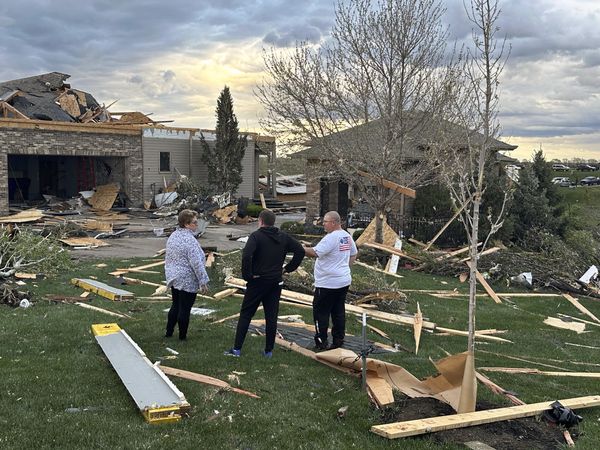
When Woolworths CEO Brad Banducci announced his resignation this week, it surprised no-one. His exit follows a catastrophic walk-out during an interview with ABC’s Four Corners, credible accusations of price gouging by the supermarket giant, and the public and political responses to the retailer’s decision to stop stocking “Australia Day” merchandise this year.
But while Banducci gets to leave with $24 million in Woolworths shares and an estimated $6.5 million in pay for the past nine months of employment alone, the incoming chief executive of the supermarket giant now has a lot more on her plate. With a gendered side dish to accompany her transition into the top job.
Banducci’s successor is Amanda Bardwell, the current managing director of Woolworths’ e-commerce branch, WooliesX. She will be the first woman to lead the company. While Bardwell has more than 23 years of experience at the retailer and is undoubtedly qualified to take on the top job, her shattering of the glass ceiling may also see her fall head-first over the glass cliff.
The glass ceiling is a metaphor referring to the invisible barriers that prevent people of oppressed groups — race, gender, class, etc — from rising into leadership positions and the upper echelons of a power structure.
The glass cliff is an extension of this metaphor. It proposes that if women or people of minority groups are elevated to positions of seniority, it is more likely to occur in circumstances associated with an increased risk of criticism and failure. Women’s leadership positions are then perceived as more insecure than those of men. In these conditions, fault is more likely to be associated broadly with their gender, race or other minority status, in turn re-strengthening the glass ceiling that locked oppressed groups out in the first instance.
Think Vanessa Hudson replacing Alan Joyce after Qantas’ reputational fallout, or Marissa Mayer being elevated to CEO of Yahoo after it lost significant market share to Google. Think Theresa May becoming prime minister after the pound dropped to unseen levels following Brexit, or Linda Yaccarino taking the helm of X (formerly Twitter) after the turbulent acquisition by Elon Musk. Think share market falls, reputational damage, or in this case, an ABC Four Corners humiliation showing a severe lack of media training after a period of price gouging that has thrust the Australian public further into a cost of living crisis.
Consistently, women are elevated to the highest ranks when no men want to stand at the bow of a sinking ship. But for women and other oppressed groups, especially those who face exacerbated and interlocking forms of discrimination and marginalisation, this may be their only opportunity at the top spot.
It is crucial to note that these precarious positions of power are not a gift bestowed on underqualified women; quite the opposite. The glass cliff is not pointing to a lack of knowledge or experience; it is amplifiying the significance of how people of minority status are appointed to power: when there is nowhere left to turn, when there is an opportunity to lay blame elsewhere, or when simply no man wants the job.
These stories don’t exist in a vacuum, however, and this isn’t to say that women won’t recover from these corporate catastrophes and find success. Bardwell, with more than two decades at the upper end of this overpriced food chain, has been an active and powerful contributor to the position in which Woolworths finds itself. Her privilege and senior role during this period of downturn is an important fact that should not be overlooked. However, it remains noteworthy that corporations are more likely to place people from oppressed groups in positions of power as businesses crumble, making them more likely to fall, and from a greater height.
It is vital that we identify and critique the glass cliff in action because, if left unchecked, it wrongly imposes a social and cultural bias towards the status quo. It associates stability with white men, the same men who drove the businesses and groups they represent into a state of disrepair in the first instance. Drawing attention to these falsehoods is at the crux of the fight for equality.
As Bardwell attempts to transform the narrative of a corporation far departed from the communities it claims to service, the structural challenge remains: when and how will leaders representing minority groups be afforded equal opportunity to lead?







